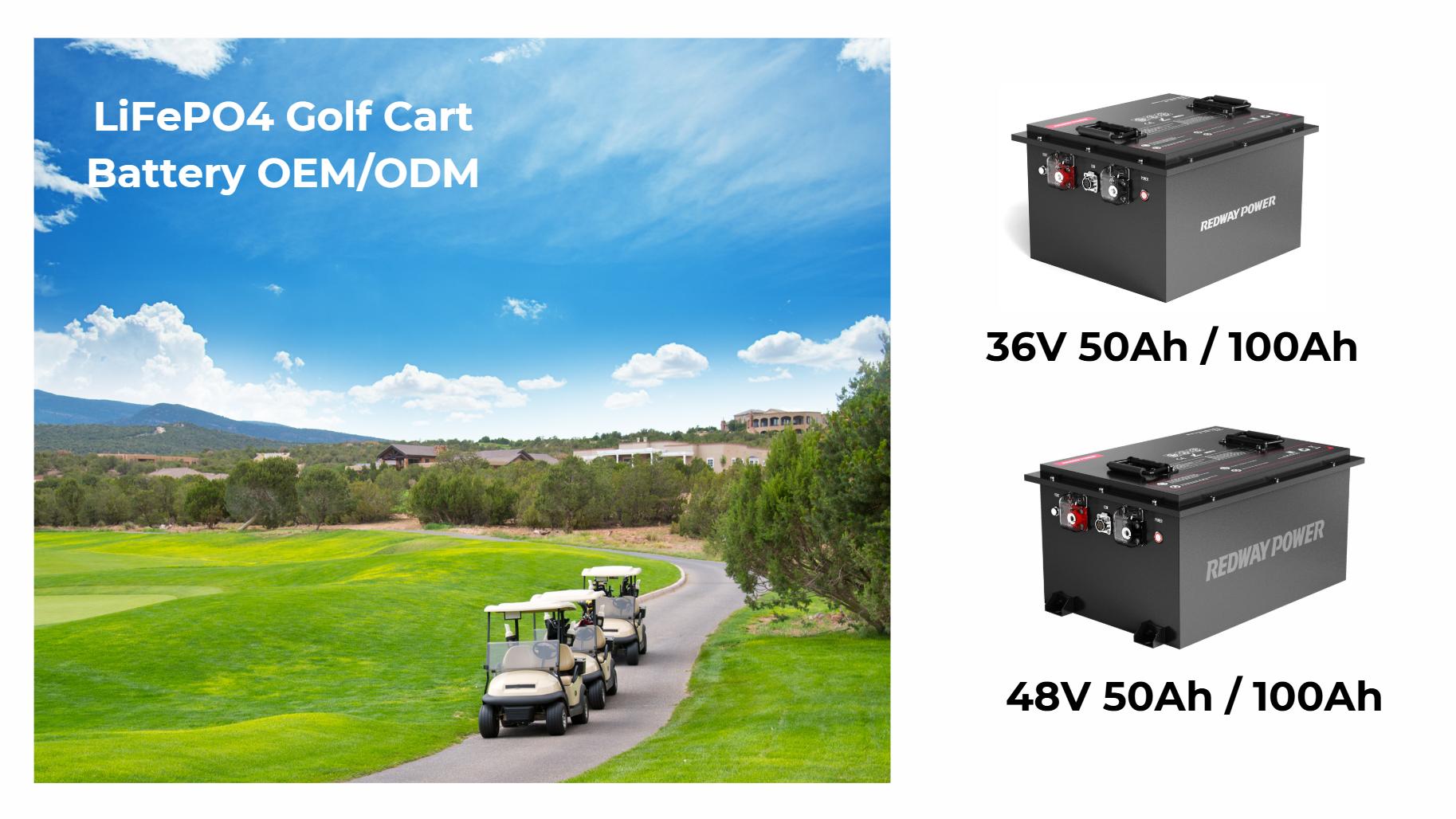
Understanding Golf Cart Battery Performance and Common Issues
Understanding the performance and common issues associated with golf cart batteries is essential for maintaining optimal functionality and longevity. This guide explores why batteries may not charge, compares lithium and lead-acid options, and provides tips on finding affordable battery solutions for your EZGO golf cart.
Why Are My Golf Cart Batteries Not Charging?
If your golf cart batteries are not charging, ensure the charger is properly connected and functioning. Check for loose or damaged connections, inspect the battery terminals for corrosion, and verify that the batteries have sufficient water levels. Testing each battery’s voltage with a multimeter can help identify faulty batteries that may need replacement. If your golf cart batteries are not charging, several factors could be at play:
- Faulty Charger: The charger itself may be malfunctioning; check for any signs of damage or wear.
- Loose Connections: Ensure that all connections between the battery and charger are secure.
- Battery Age: Older batteries may not hold a charge effectively, indicating the need for replacement.
| Issue | Description |
|---|---|
| Faulty Charger | Inspect for damage or malfunction |
| Loose Connections | Ensure all connections are tight |
| Battery Age | Older batteries may require replacement |
What Is the Performance Difference Between Lithium and Lead-Acid Batteries?
Lithium batteries offer superior performance compared to lead-acid batteries, including longer lifespan, faster charging times, and lighter weight. They provide consistent power output without voltage drop-off and require minimal maintenance. In contrast, lead-acid batteries are more affordable but have shorter lifespans and slower charging capabilities, making them less efficient for frequent use. When comparing lithium vs lead-acid batteries, several performance metrics stand out:
- Weight: Lithium batteries are significantly lighter, enhancing the golf cart’s maneuverability.
- Lifespan: Lithium batteries can last up to ten years, while lead-acid typically lasts three to five years.
- Charging Speed: Lithium options charge faster and maintain voltage better during discharge.
| Comparison Factor | Lithium Batteries | Lead-Acid Batteries |
|---|---|---|
| Weight | Lighter | Heavier |
| Lifespan | Up to 10 years | 3-5 years |
| Charging Speed | Faster | Slower |
Where Can I Find Cheap 8 Volt Golf Cart Batteries?
You can find cheap 8-volt golf cart batteries at local auto parts stores, big-box retailers like Walmart and Costco, and online marketplaces such as Amazon and eBay. Additionally, check for sales or refurbished options at specialized battery retailers to find competitive pricing without sacrificing quality. To find cheap 8 volt golf cart batteries, consider these options:
- Local Retailers: Check auto parts stores or battery specialty shops for sales or promotions.
- Online Marketplaces: Websites like Amazon or eBay often have competitive prices on new and used batteries.
- Wholesale Clubs: Stores like Costco or Sam’s Club may offer bulk pricing on golf cart batteries.
| Source Type | Examples | Price Range |
|---|---|---|
| Local Retailers | Auto parts stores | $80 – $150 |
| Online Marketplaces | Amazon, eBay | Varies widely |
| Wholesale Clubs | Costco, Sam’s Club | $100 – $120 |
How to Find Cheap 6 Volt Golf Cart Batteries?
To find cheap 6-volt golf cart batteries, explore local auto parts stores, golf cart dealerships, and big-box retailers like Sam’s Club. Online platforms such as eBay and Amazon often have competitive prices. Look for discounts or refurbished options at specialized battery shops to save on costs while ensuring reliability. Finding cheap 6 volt golf cart batteries can be achieved through:
- Local Classifieds: Websites like Craigslist may have listings for used batteries at lower prices.
- Battery Retailers: Some specialty battery shops offer discounts on older inventory.
- Community Forums: Engage with local golfing communities online; members often sell equipment at reasonable prices.
What Type of Battery Is Best for an EZGO Golf Cart?
The best type of battery for an EZGO golf cart typically includes deep-cycle lead-acid or lithium-ion batteries. Lead-acid batteries are cost-effective but require maintenance; lithium-ion batteries provide longer lifespan and faster charging. Assess your usage patterns to determine which type best meets your performance needs and budget. When selecting a battery for an EZGO golf cart, consider:
- Voltage Requirements: EZGO carts typically use 36V or 48V systems; ensure compatibility.
- Battery Type: Choose between lead-acid and lithium based on your usage patterns and budget.
- Brand Reputation: Trusted brands like Trojan or Interstate are known for quality and reliability.
How to Troubleshoot Common Golf Cart Battery Issues?
To troubleshoot common golf cart battery issues, start by checking battery voltage with a multimeter. Inspect terminals for corrosion and ensure all connections are tight. Test the charger with another battery if necessary. Additionally, check water levels in flooded lead-acid batteries and perform a load test to assess overall health. To troubleshoot common issues with your golf cart battery:
- Check Connections: Inspect all wiring and connections for corrosion or looseness.
- Test Voltage: Use a multimeter to measure voltage; ensure it meets specifications.
- Inspect Charger Functionality: Ensure the charger is working correctly by testing it with another battery if possible.
Expert Views
“Understanding the differences between battery types can significantly impact your golf cart’s performance,” states an expert at Battery Mart. “Investing in quality products, whether lithium or lead-acid, will enhance your overall experience on the course.”
FAQ Section
Q: How long do golf cart batteries typically last?
A: Most lead-acid batteries last between three to five years, while lithium options can last up to ten years.Q: Can I replace my old battery with a different brand?
A: Yes, as long as it meets the required specifications for voltage and size.Q: What should I do if my golf cart battery isn’t holding a charge?
A: Check connections, inspect for damage or corrosion, and consider testing or replacing the battery.
